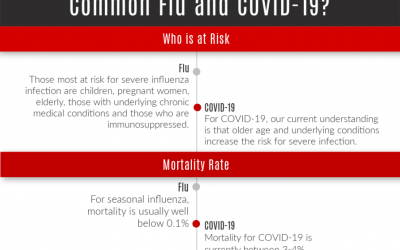“What Happens to Covid-19 Medical Waste?” MERI CEO Jim Fitzpatrick recently addressed this question for listeners of Wisconsin Public Radio’s WHYsconsin news segment.
While some would think the coronavirus pandemic is leading to a mountain of medical waste in Dane County, it’s actually not the case at the moment. Right now, MERI’s licensed medical waste disposal company is seeing less of it in the Madison area. That is because many procedures and surgeries have been canceled or postponed since the outbreak began.
“Many clinics are shutting down, so the surgeries aren’t happening and there’s less waste being generated,” Fitzpatrick told listeners.
Where Does Covid-19 PPE Go?
Fitzpatrick explained that personal protective equipment, also known as PPE, that is considered soiled by hospital policy, is thrown into a biohazard trash bag.
MERI collects PPE, such as soiled gowns, gloves and masks, in red biohazard bags. MERI’s drivers make sure the bags are sealed correctly before they are transported. The bags then go into a sealed processing system at MERI’s facility. There, the material is injected with steam. It then gets shredded and heated to 200 degrees in microwaves until it is disinfected.
“It takes about an hour from the beginning to the end. During that entire process it’s a sealed system,” Fitzpatrick said. “And when it comes out at the end, it looks like confetti.” The material is then sent to a landfill.
At the WI state level, solid and hazardous waste including infectious waste is regulated by the state Department of Natural Resources. It is following CDC guidelines for health care waste management.
“It’s required to be manifested all the way through from generation to disposal,” said Casey Lamensky, solid waste coordinator at the DNR. “So it’s tracked and properly regulated, and we are preparing for different situations in these facilities.”
###



